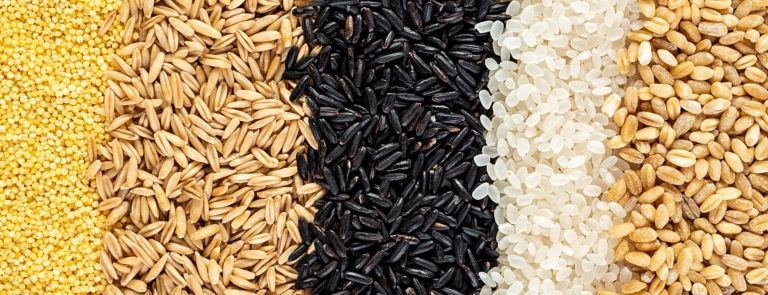10% off £35
Code:SAVE
Vitamin A in pregnancy

Vitamin A in pregnancy – do women need it? What does it do and how much of it do they need? Get all the answers right here…
Do women need Vitamin A in pregnancy? In this article, we explore why it’s important to have Vitamin A in your diet, how much you need of it and the effects of not having enough and too much of it, as well as answer some of the most commonly-asked questions being asked about Vitamin A and pregnancy right now.
What does Vitamin A do to an unborn baby?
Vitamin A is responsible for making sure several highly important areas – vision, breathing and immunity – take place when it comes to a baby’s development. One of the main ‘jobs’ for Vitamin A is helping make sure babies’ eyes develop as they should and they have a healthy immune system too. But Vitamin A’s role doesn’t stop there. It also babies’ skin cells to form and helps the tiny air sacs within their lungs to develop.These sacs enable oxygen to flow into their blood and for carbon dioxide to flow back out. Making sure you have healthy Vitamin A levels during pregnancy increases the chance of your baby being born with good levels of Vitamin A to see them through those initial few weeks and months. Babies that are lacking in Vitamin A can potentially have a weaker immune system and are therefore more prone to developing infections and illnesses.1
How much Vitamin A is harmful during pregnancy?
It’s important to make sure you don’t have too much or too little, but just enough Vitamin A in your body when you are pregnant. This is because too much Vitamin A may impact the development of your baby, which includes slowing it down, and potentially lead to birth defects.2 Low Vitamin A stores can also lead to pregnant women developing anaemia.3 On the other hand, low Vitamin A levels can also potentially impact your baby’s development too.4Ideally, you should get all the Vitamin A you need from your diet. In fact, the NHS recommends pregnant women shouldn’t take supplements, which includes fish liver oil supplements, to up their levels.5 They should also steer clear of liver and liver products, such as pate, because of their high Vitamin A content.6 If you decide to take a multivitamin tablet during pregnancy, check the small print to make sure they don’t contain Vitamin A.7 The Recommended Daily Allowance for Vitamin A is 700 to 900 mcg a day for adults. The maximum daily limit is 3,000 mcg, anything over this level is deemed unsafe.8 Eating liver or liver pate just once a week, can potentially mean you’re getting more than your daily average of 1.5mg of Vitamin A.9
Which foods are high in Vitamin A?
The good news is there are plenty of Vitamin A food sources out there. And the even better thing is, the human body stores any ‘extra’ Vitamin A in your liver for when it is needed. This means you do not have to make sure you eat Vitamin A foods every day.10Foods that contain Vitamin A:
- Cheese
- Egg yolks
- Oily fish, e.g. salmon, mackerel and trout
- Fortified low fat spreads
- Milk
- Yoghurt
- Liver and liver products
- Butter
- Cod liver oil11
Foods that contain beta-carotene that can be converted into Vitamin A:
- Yellow fruit – mango, papaya and apricots14
- Yellow, red and green leafy vegetables – such as spinach, carrots, sweet potatoes, red peppers, pumpkin, kale, dandelion greens, cabbage, swiss chard, collard greens, parsley and butternut squash15
Some Vitamin A recipes for you to try
If you’re pregnant or planning on getting pregnant, then it’s highly advised you steer clear of Vitamin A supplements and get your intake via your food (being mindful that your levels are in the line with the current RDA guidance).Recipe 1: Vitamin packed smoothie
Ingredients:16- 1 orange, peeled and roughly chopped
- 1 large carrot, peeled and roughly chopped
- 2 sticks celery, roughly chopped
- 50g mango, roughly chopped
- 200ml water
Recipe 2: Roasted carrots with cardamom butter
Ingredients:17- 4 teaspoons butter, melted
- 2 teaspoons canola oil
- 1 teaspoon ground cardamom
- ½ teaspoon salt
- 2lb carrots, peeled and cut diagonally into 1/4-inch-thick slices
- Pre-heat your oven to 450F.
- Combine the butter, oil, cardamom and salt in a medium bowl.
- Add the carrots and toss well to coat.
- Spread evenly on a rimmed baking sheet.
- Roast the carrots, stirring twice, until tender and golden, about 30 minutes.
- Serve immediately.
Recipe 3: Spinach and carrot soup
Ingredients:18- 1 cup chopped spinach
- ½ cup grated carrot
- 1 finely chopped onion
- 1 cup milk
- 4 tsp fresh cream
- 1 tbsp butter
- 1 tsp olive oil
- Salt and pepper to taste
- Add the butter and olive oil to a pan and sauté the onions until they are pink.
- Add the carrots and sauté them for 4 to 5 minutes.
- Add the spinach with ½ cup of water and let it cook until the water boils and then stop cooking.
- Once this mixture cools down, blend it into a fine paste.
- Again, heat this along with the milk for 4 to 5 minutes.
- Add the salt and pepper and garnish it with the fresh cream and your soup is ready.
Recipe 4: Sweet potato halwa
Ingredients:19- 2 sweet potatoes
- 3 to 4 tbsp sugar
- ½ tsp cardamom powder
- 2 tbsp coarsely crushed cashew nuts
- 1 tbsp raisins
- 2 tbsp butter
- Wash the sweet potatoes and make small pricks all over them with a knife.
- Roast them directly over a flame. Alternatively, you can bake them or boil them, but the roasting gives a smoky flavour.
- Peel and mash the sweet potatoes.
- Take 1 tbsp of the butter and roast the cashews. Move them to the side to cool.
- Add the remaining butter to the pan and add the mashed sweet potatoes, sugar, cardamom powder and sauté for 3 to 4 mins. You can add a few spoons of milk if it is too thick.
- Add the roasted cashews and raisins and serve warm.
Vitamin A for newborns plays an incredibly important role, as Vitamin A impacts both mum and baby in a number of different ways. The bottom line is: pregnant women should not take any form of Vitamin A, not even cod liver oil, and get their intake via their food. However, it’s important to steer clear of Vitamin A-rich food, such as liver and liver pate. While you’re here, we think you may like this – ‘What foods should I avoid during pregnancy?’
Related Articles
Shop by wellness goal
Sign up for exclusive offers
Plus, get expert advice to support your health & wellness straight to your inbox when you sign up to Holland & Barrett emails.
Read our
privacy policy














